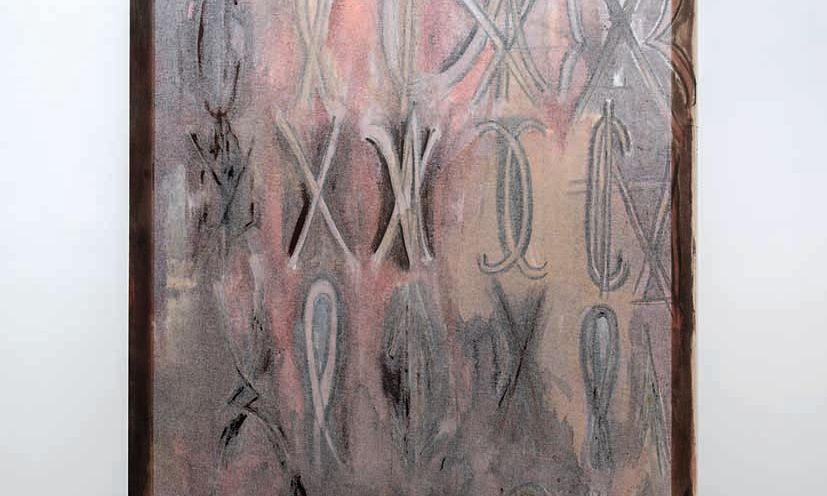osario Zorraquin’s Dentro del ojo del águila (2021) is being shown by Galería Isla Flotante in Expo Chicago’s Exposure section Courtesy of the artist and Galería Isla Flotante
The cities of Chicago and Buenos Aires share histories as major ports, railway hubs and meatpacking centres. “If you start looking, there are a lot of similarities in terms of how they were built,” says the Argentine collector and patron Benedicta Badia Nordenstahl. “For me, the important thing is that art has a strong place of resistance in Chicago and Argentina.”
Based in Chicago, where she returned in 2022 after a five-year sojourn in Singapore, Nordenstahl has been campaigning for Argentines to visit the Midwestern city, whose population is nearly 30% Latino, and experience its art scene. “It wasn’t by chance that I chose Chicago,” she says. “It is a city of doers. A Latin American can feel very comfortable here.”
In part due to her networking, Argentina’s presence is felt at this year’s Expo Chicago art fair, where three galleries from Buenos Aires are showing work for the first time. Barro, Piedras and Isla Flotante are exhibiting as part of the fair’s Exposure section, which focuses on emerging and younger galleries and is this year curated by Aimé Iglesias Lukin, the Buenos Aires-born director and chief curator of visual arts at Americas Society in New York.
“We were very much surprised about the deep knowledge of Latin American art and its main references within the Chicago art scene—for sure, part of the amazing work of the MCA,” says Isla Flotante’s director, Leopol Jose Maria Mones Cazon. “Hopefully, our first participation is the first of many.” At Expo, the gallery will present works by artists including Rosario Zorraquín, who is creating a site-specific work, and Mariela Scafati, who had a sculpture acquired by the Museum of Contemporary Art (MCA) Chicago in 2019.
It was Nordenstahl, a friend of Cazon’s, who introduced Scafati’s art to Naomi Beckwith, the then senior curator at the MCA Chicago. “I’m tying the knots. I’m a people connector,” Nordenstahl says. “I want to bring as many ambassadors of Argentina who understand the context.”
She’s convinced several Argentine collectors to attend this year’s fair; worked with the Argentine consulate general in Chicago to organise tours for local Argentines; and arranged for Agustín Díez Fischer, the director of the archive and research centre Espigas Foundation in Buenos Aires, to speak at the Curatorial Forum co-hosted by Expo Chicago and Independent Curators International. The forum’s keynote speaker— the director of the Museo de Arte Moderno de Buenos Aires, Victoria Noorthoorn—is also in Nordenstahl’s close circle.
More connections will be made at Nordenstahl’s own home, an industrial loft in the nearby River North neighbourhood, where a rehang of her collection, viewable through docent tours, is in dialogue with Expo’s Exposure section.
“We’re developing programming that may facilitate people to understand Argentine or Latin American art in a more holistic way,” she says. “The galleries in Argentina mostly don’t sell art like warm bread, or a luxury item, without thinking. You cannot disengage Argentine art from its changemaking and resistance. I believe collecting is a social responsibility and a political exercise.”

